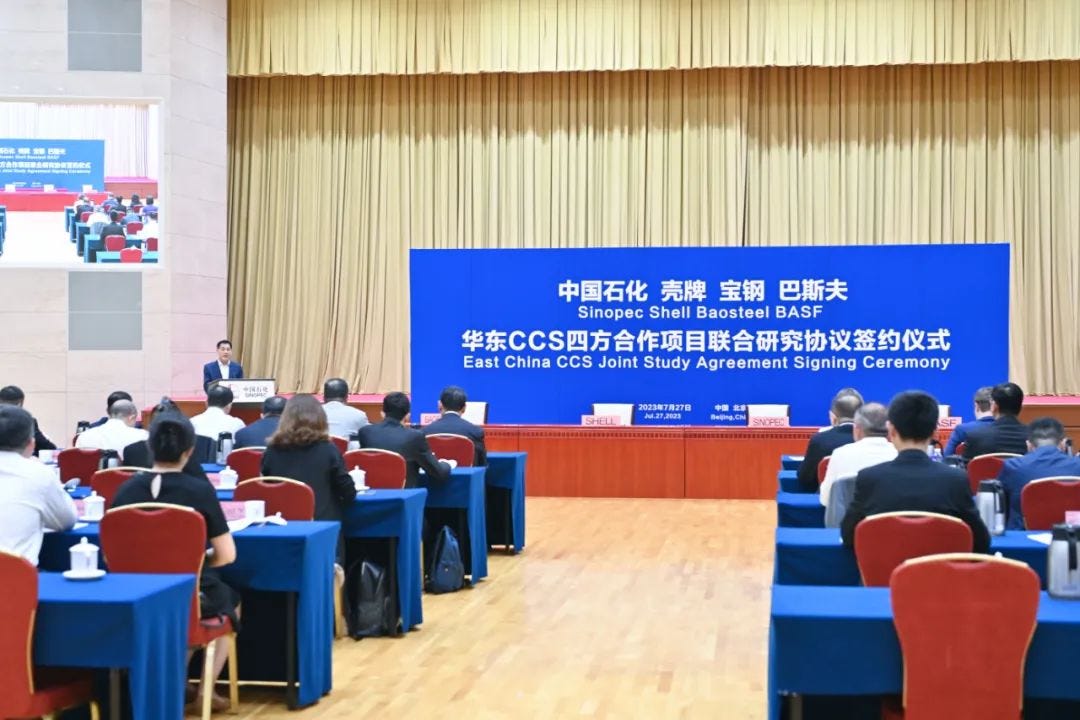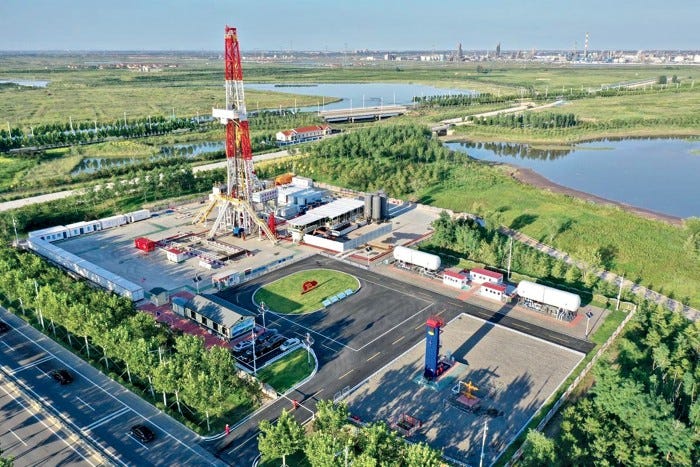Sinopec, Shell, Baowu Steel, and BASF began feasibility study of first 10 million ton CCS project in China
Sinopec, Shell, China’s largest steel manufacturer Baowu and BASF signed a joint research agreement on July 27th to assess the feasibility of first 10 million ton CCS project in eastern China.
The quartet intends to conduct a joint study to assess the technical solutions and develop a commercial model for the project. If successful, it would be China’s first 10 million ton scale CCS project.
Great demand for CCS in Eastern China
Eastern China is the most populated and industrialized region in China and globally, which output 314.85 mn ton steel and 730 mn ton cement in 2022, the region also has 390 mn ton crude oil processing capacity. This region alone was accountable for 2,964 mn ton carbon emissions in 2018, according to World Resources Institute.
As China set the goal of carbon peak by 2030 and carbon neutrality by 2060, those sectors with heavy carbon emission intensity are seeking various technologies to decarbonize their procedure, CCS is one of them.
Significant geological potential
China has significant geological potential for storing carbon, with an estimated 2400 gigaton in storage capacity, second only to the US. It currently has more than 40 CCUS pilot projects with a total capacity of 3 million ton, currently, most of which are located at oil and gas field to enhance oil recovery.
Shell said that in a net-zero emissions energy system, at least 1.3 Gt of CO2 a year will need to be captured and permanently stored in 2060. A research, conducted by Global CCS Institue and Tsinghua University in 2023, estimates that China will need 24 mn ton and 100 mn ton CCS capacity by 2025 and 2030 respectively. This means CCS capacity will expand 30 times by this decade.
“While this is technically possible, as many of the CCUS technologies in China are close to or have reached commercialization, the main challenge lies in creating conditions to support substantial investment in large-scale CCUS, particularly as a solution to industrial decarbonization,” said the UK energy giant.
Sinopec is committed to leading China's industrial development of CCUS. In 2012, Sinopec launched China's first coal-burning power plant CCUS project in Shengli Oilfield, and in 2015 collaborated with Sinopec Nanjing Chemical Industries Co., Ltd. and Sinopec East China Oil and Gas Company to pioneer the utilization of CO2 resources utilization throughout its upstream and downstream companies. Sinopec captured 1.52 million tons of CO2 in 2021. China's first megaton-scale CCUS project, the Qilu-Shengli Oilfield CCUS project, began commercial operation in early 2022.
image: Sinopec’s Qilu-Shengli oilfield CCUS plant





